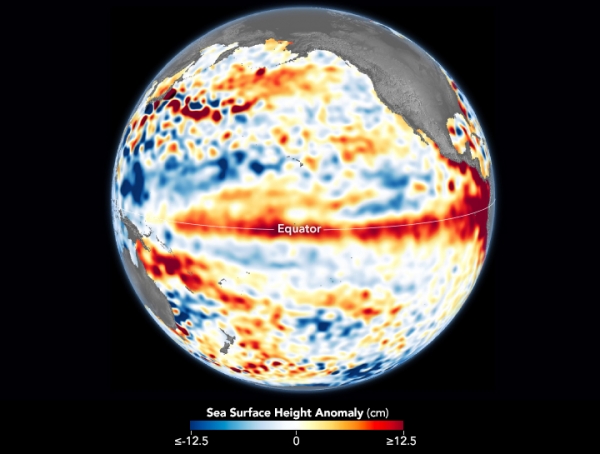After three consecutive years of La Niña, spring 2023 saw the return of El Niño—a natural climate phenomenon characterized by the presence of warmer than normal sea surface temperatures (and higher sea levels) in the central and eastern tropical Pacific Ocean.
El Niño is associated with the weakening of easterly trade winds and the movement of warm water from the western Pacific toward the western coast of the Americas. The phenomenon can have widespread effects, often bringing cooler, wetter conditions to the U.S. Southwest and drought to countries in the western Pacific, such as Indonesia and Australia.
Satellite- and ocean-based measurements of sea surface temperature are one way to detect the arrival of El Niño. Its signature also shows up in satellite measurements of sea surface height, which rises as ocean temperatures warm up. That’s because warmer water expands to fill more volume, while cooler water contracts.
Read more at: NASA Earth Observatory
Photo Credit: Lauren Dauphin


